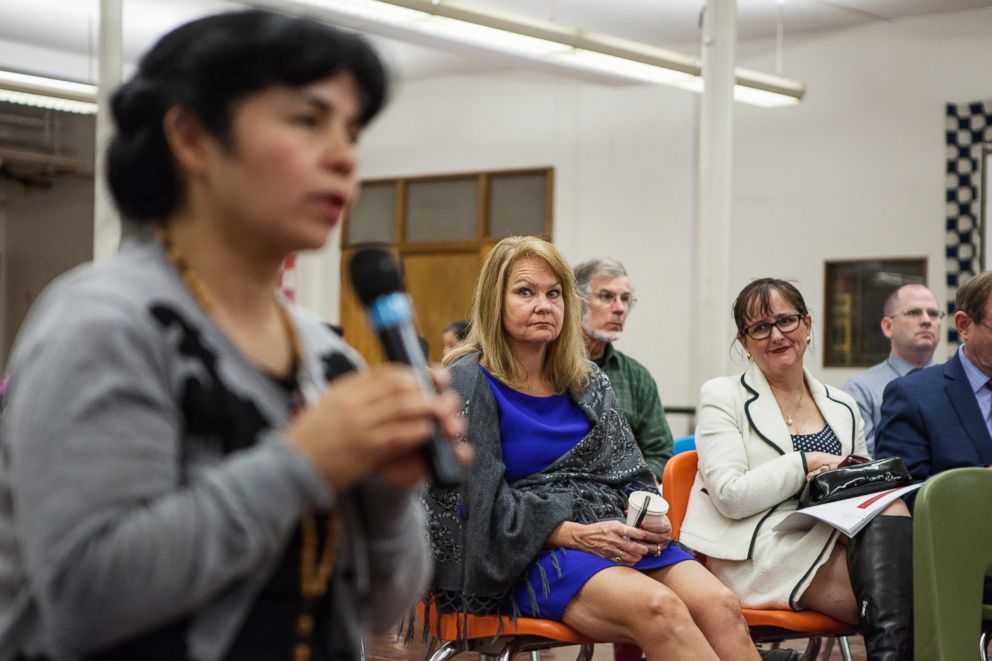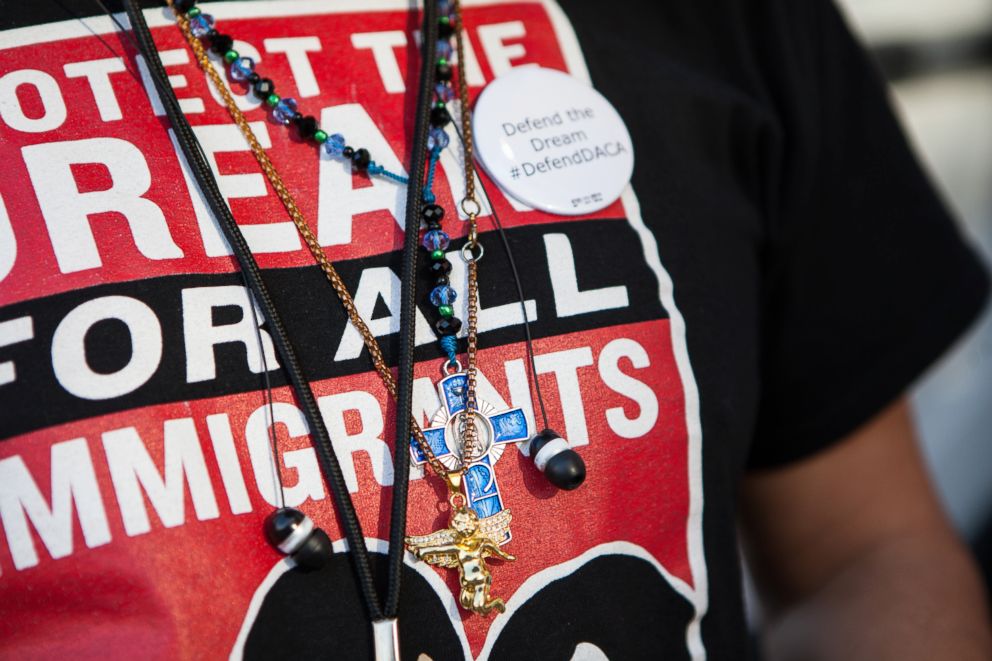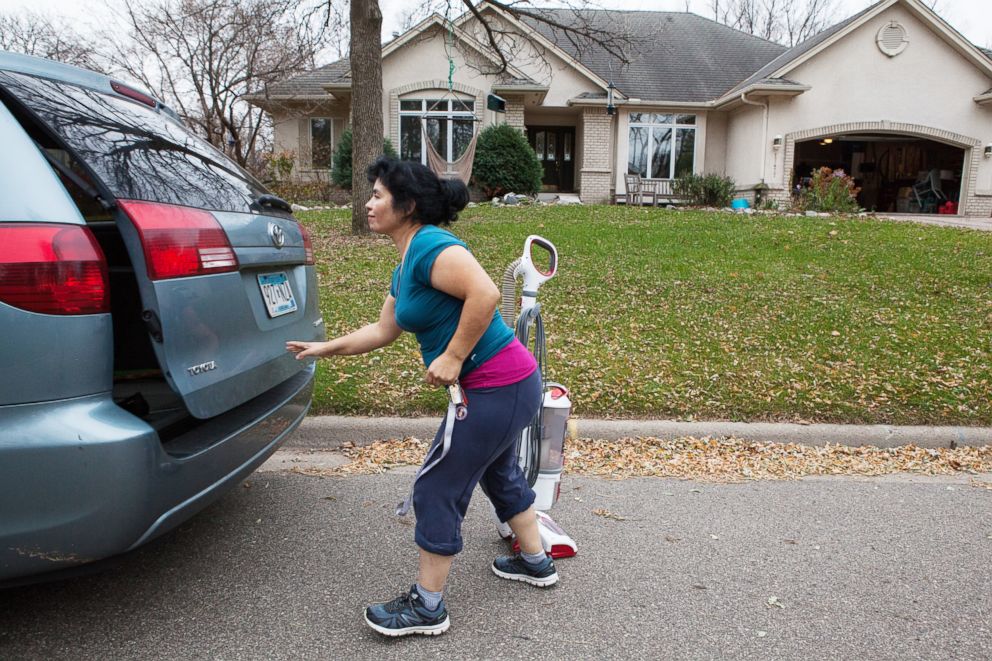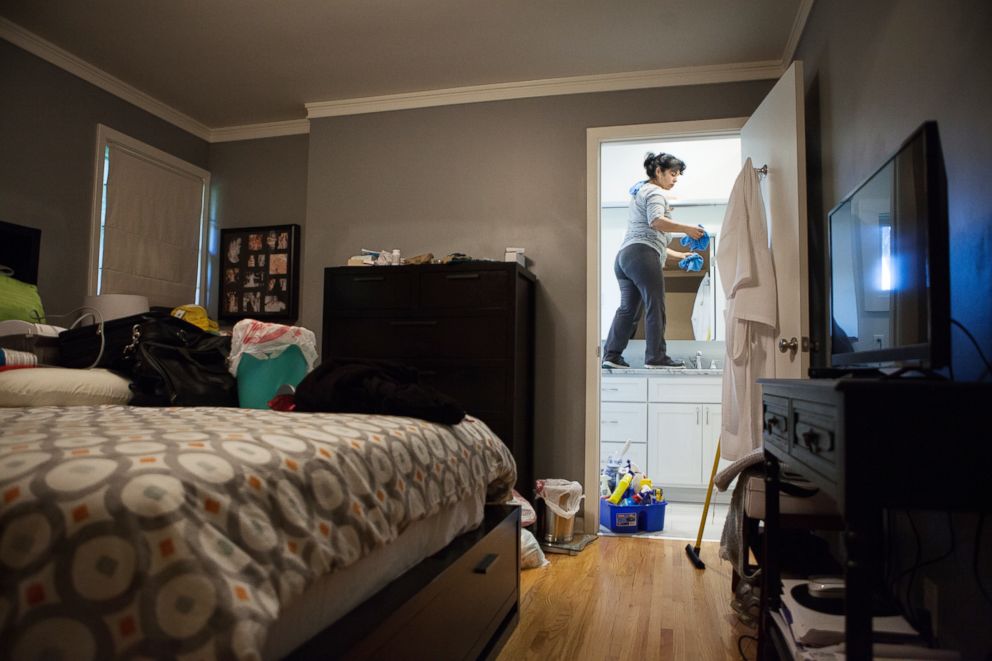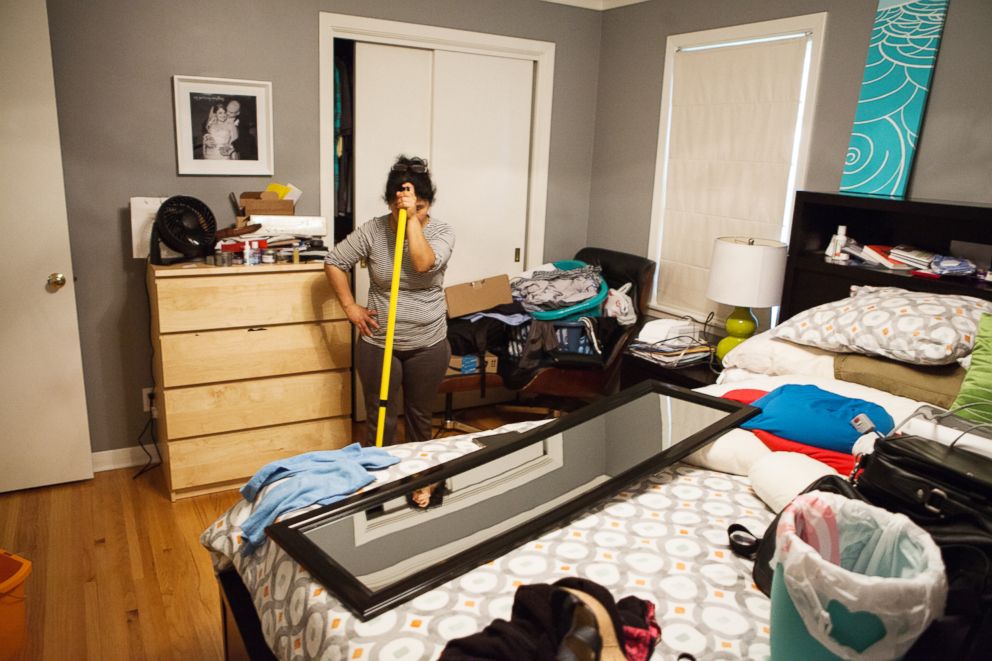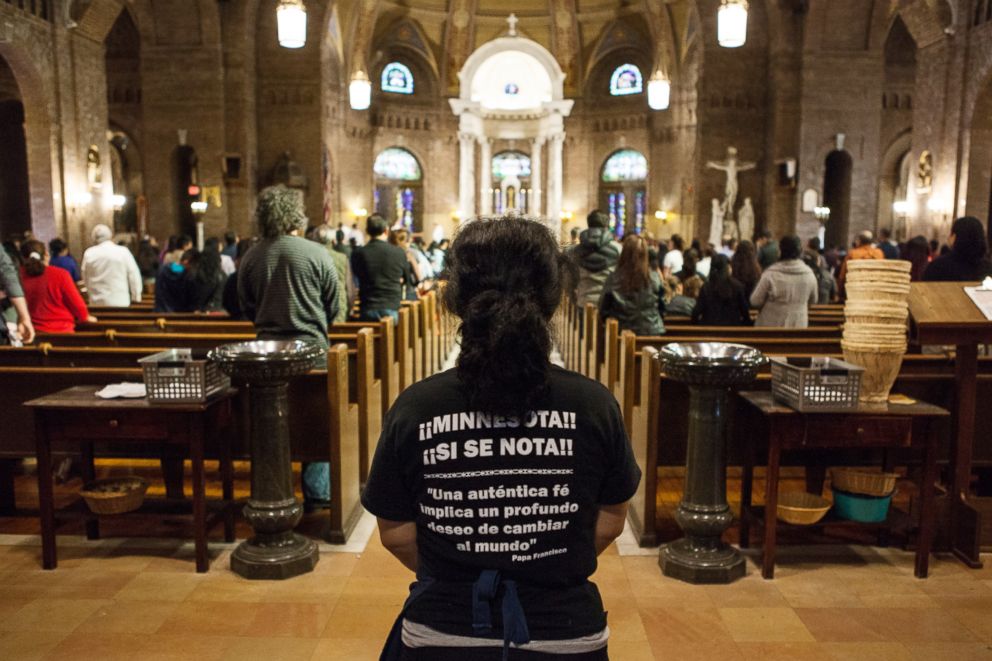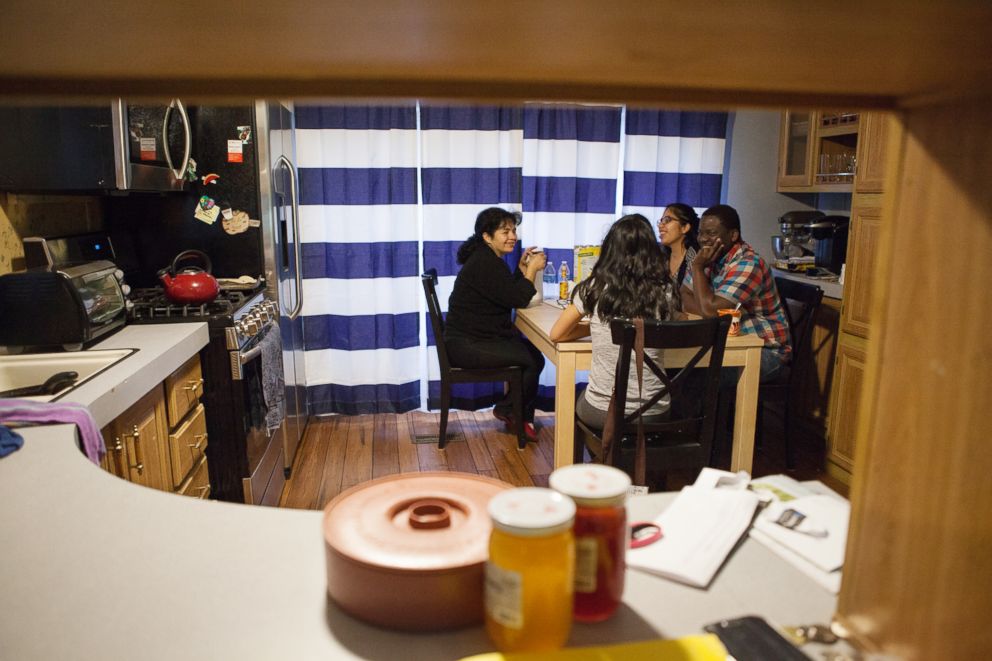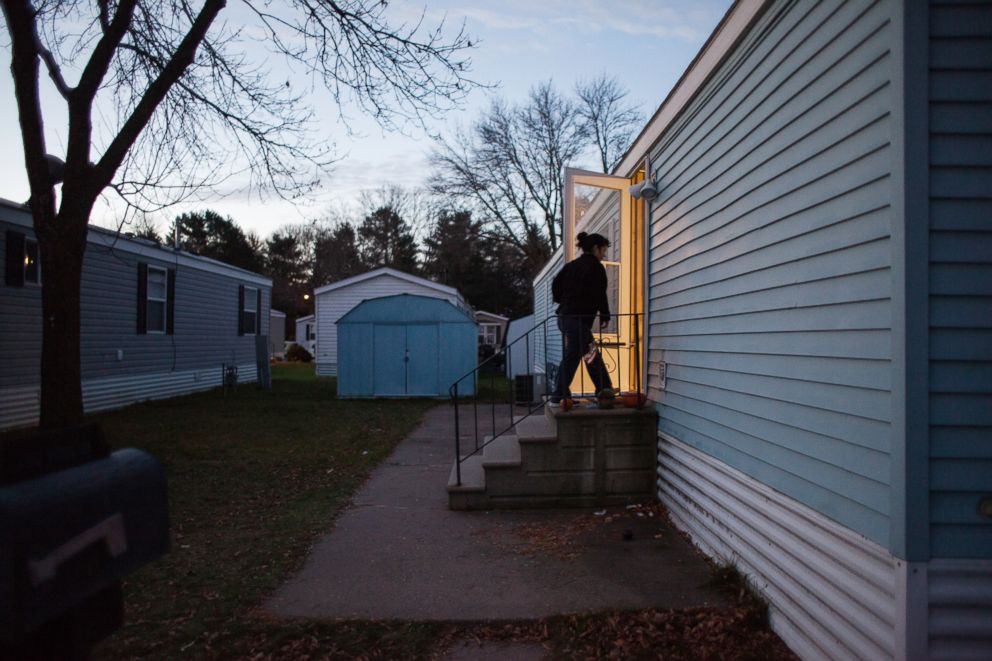Undocumented activist fights for her children's right to stay in the US
She leads a Minnesota group that advocates for undocumented immigrants.
— -- For thousands of people living in the United States, the immigration debate is not a political issue, but a matter of personal survival. For Antonia Alvarez, it's also a question of what will happen to her children.
Alvarez, an undocumented immigrant, entered the United States 16 years ago. At the time she fled, she said cartel-linked criminals had been attacking her employees in her decoration-making business in Mexico City.
Alvarez, 47, now lives in New Brighton, Minnesota, with her four children -- three of whom are recipients of the Deferred Action for Childhood Arrivals (DACA) program and face possible deportation if the Obama-era policy is rescinded.
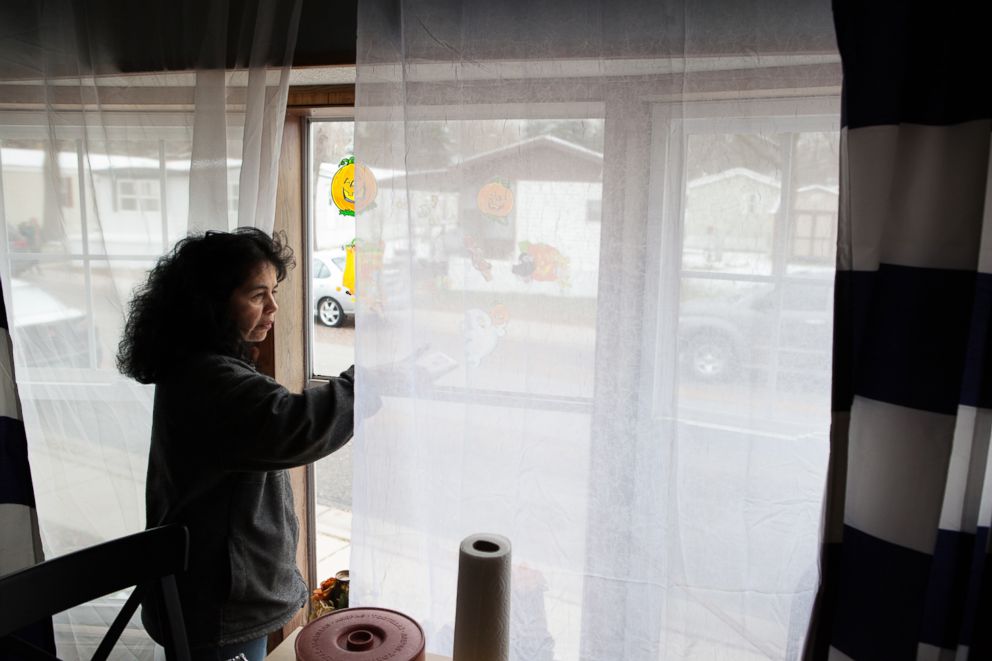
The DACA program, granted by President Barack Obama under an executive action in 2012, allows certain undocumented immigrants who were children when they entered the United States to remain in the country without fear of deportation. The policy also gives these beneficiaries, commonly referred to as "dreamers," the right to work legally.
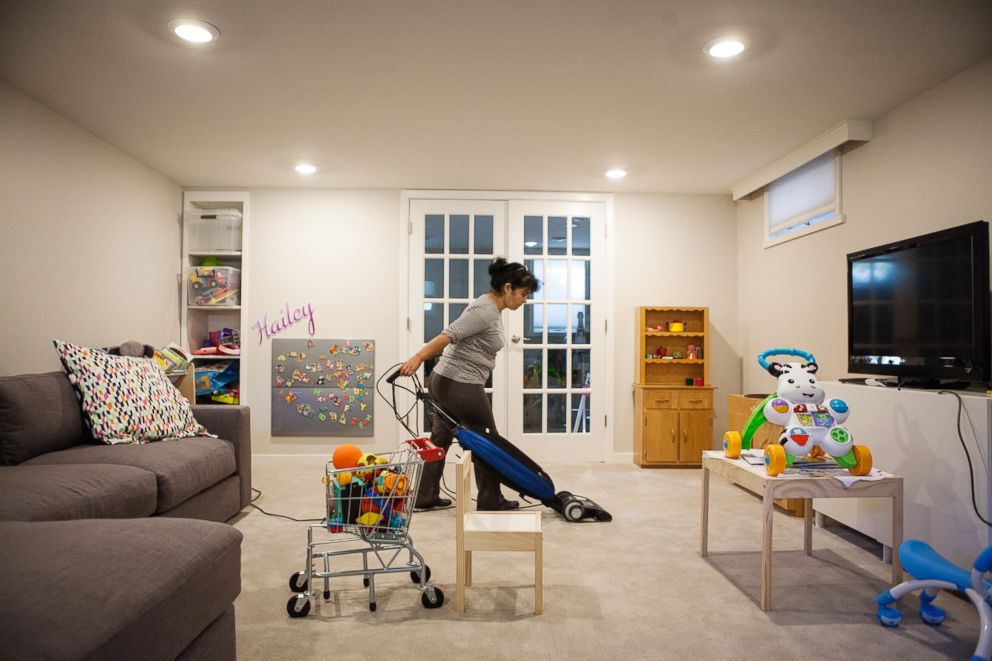
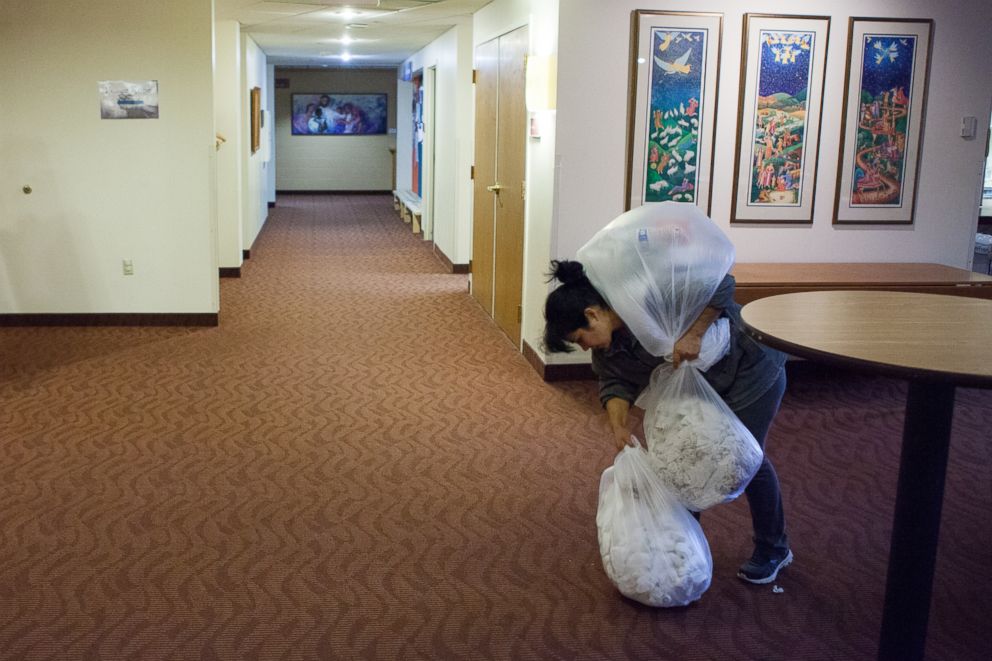
Alvarez, who runs a house-cleaning business by day, is known in her community as an outspoken leader of the activist group La Asamblea de Derechos Civiles de Minnesota, which translates to Civil Rights Assembly of Minnesota, a grassroots organization that advocates for undocumented immigrants.
See the slideshow:
Out in public and undocumented, an activist fights for immigrant rights
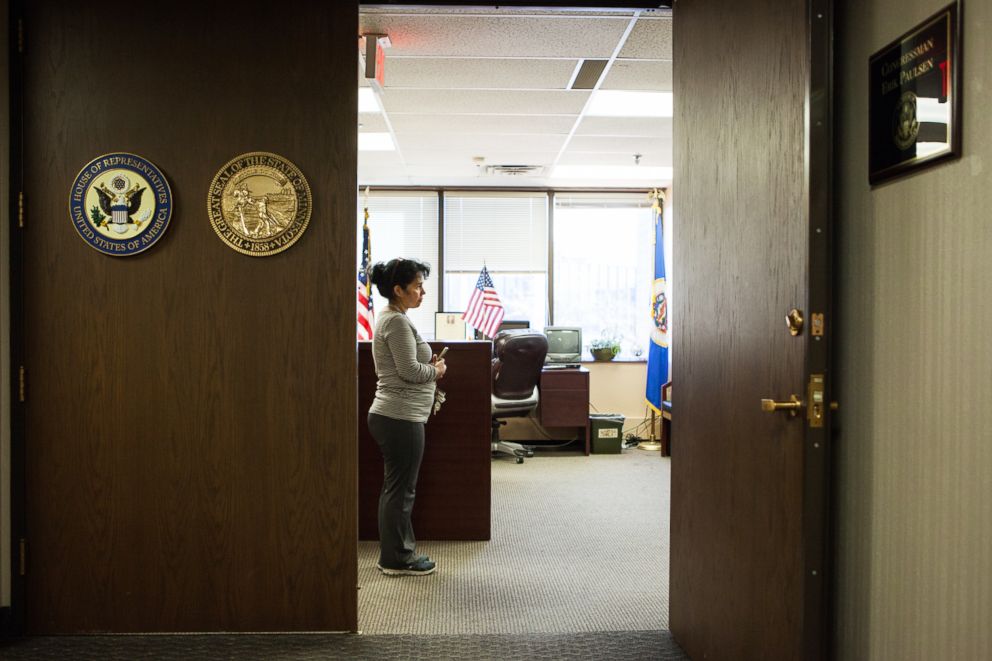
The organization trains undocumented immigrants on how to handle raids by U.S. Immigration and Customs Enforcement through roleplaying. The activists feel that simulating these scenarios prepares undocumented immigrants for possible situations in which they could find themselves in real life. La Asamblea also holds "Rapid Response" training sessions for U.S. citizens who want to know how to help or support undocumented immigrants. The group also works to organize Latino communities and others around affordable housing.
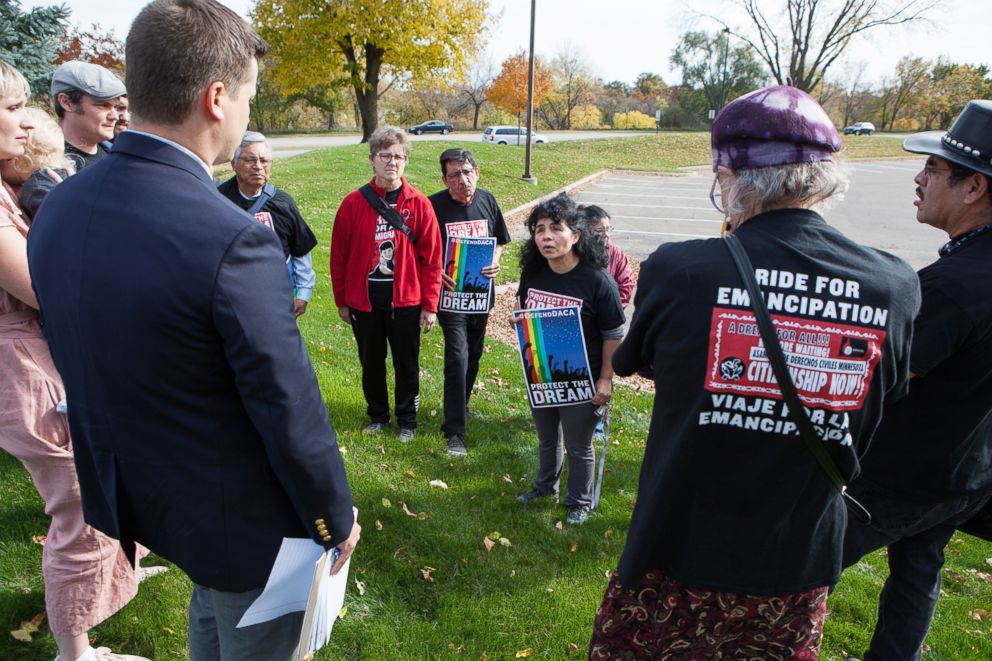
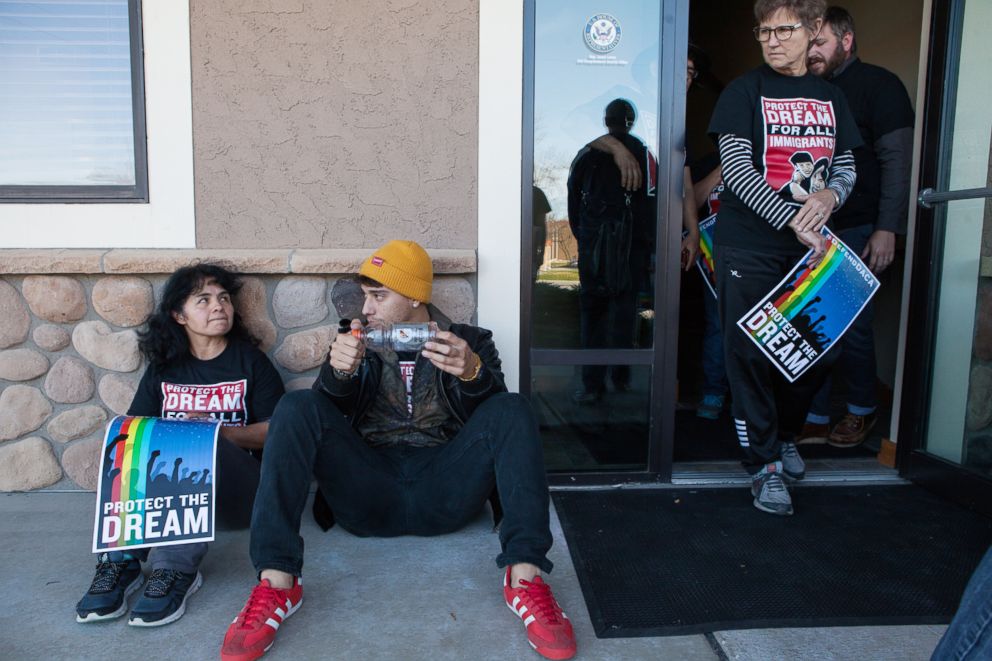
In recent months, La Asamblea members have been peacefully protesting outside the offices of Minnesota Congressmen Erik Paulsen and Jason Lewis, urging them to vote for DREAM Act legislation that would ensure residency for thousands of young undocumented immigrants, like Alvarez’s children.
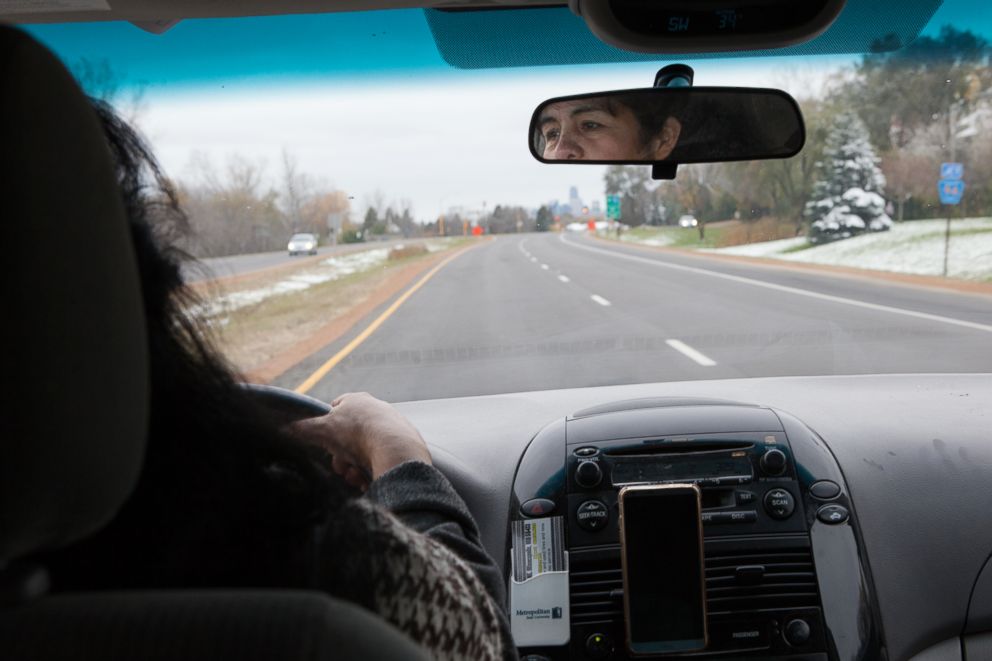
I’m an undocumented woman, but I’m not a criminal.
Alvarez said she is open about her undocumented status during demonstrations, even to police.
“I am not embarrassed because I don’t have papers," she told ABC News. "I put my face in the front."
She believes the visibility provides some layer of protection because authorities know there would be media attention and community backlash if they arrested her. That’s why Alvarez encourages other undocumented immigrants to openly stand up for themselves, as well.
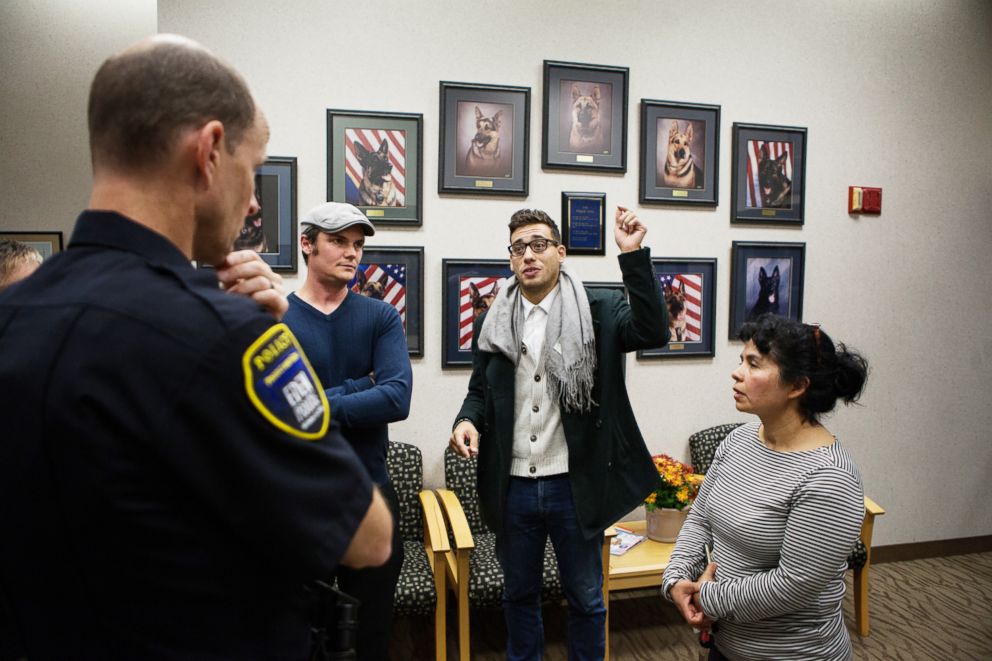
"I don’t want to say to the people, 'Oh I’m a United States citizen.' No, because it’s not true," she said. "I always say the truth: I’m an undocumented woman, but I’m not a criminal."
Life without proper paperwork has several challenges, but Alvarez said none is as difficult as driving without a license.
"I have no choice because I have to work, otherwise who’ll pay for [my youngest daughter] Melina’s food, my house rent," she said. "We all need to work."
Undocumented immigrants live in the shadows, Alvarez said, by avoiding any possible interaction with police that might bring their status to light.
"Whenever people crash [into] my car, I never call the police," she continued. "[Undocumented] immigrants always remain quiet when this happens to them."
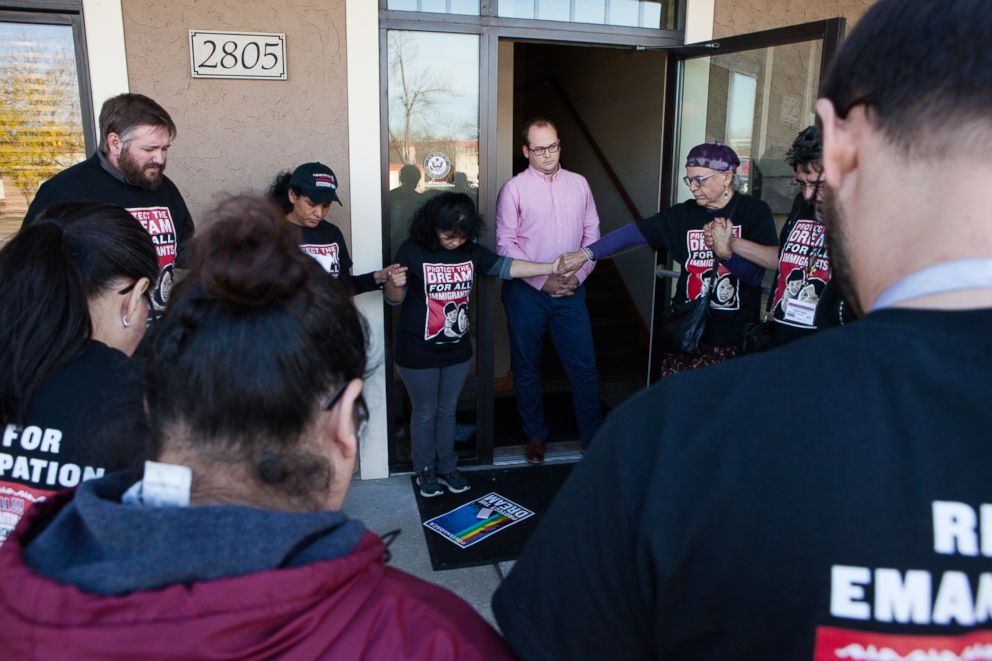
In late November, Alvarez traveled with other La Asamblea members to Washington, D.C., to try to persuade lawmakers to vote for the DREAM Act while Congress was still in session. The measure would allow Alvarez’s children, and 800,000 other dreamers, to remain in the United States and gain a path toward citizenship.
Alvarez remained in the Capitol through mid-December to stage a 12-day fast until Congress recessed for the holiday break. She and another demonstrator consumed nothing but water and tea.
While Alvarez appears fearless, she said her children are afraid and stressed, facing sleepless nights as they remain in limbo.
Her daughter Carolina wants to leave the country where she grew up and move to the home country of her boyfriend, who is also undocumented, Ghana. This weighs heavily on Alvarez’s mind; she feels it would be a loss of the battle she has been fighting with Asamblea all these years.
"When I try to speak to my daughter, she refuses to speak with me about the situation," she told ABC News. "Maybe one day she will come and [say] 'Mom I have to go.'"
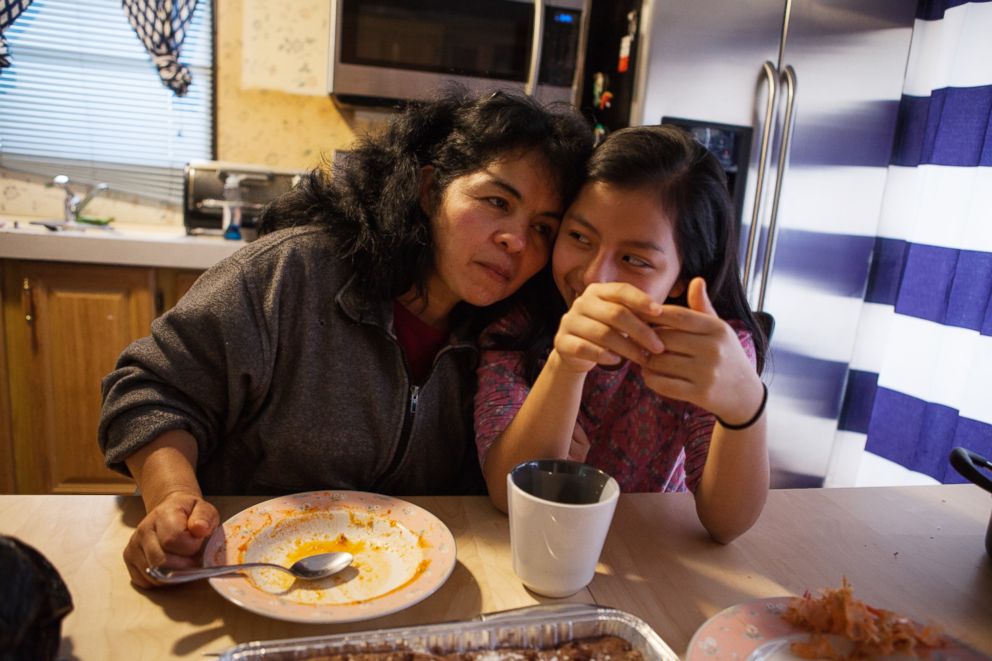
When the family was forced out of their home because of her undocumented status, Alvarez said, it was traumatic for her daughter Melina, who is a U.S. citizen. The family was evicted from the mobile home park where they once lived after it was sold to a private developer, despite protests.
Now living in another mobile home park, Alvarez said returning to Mexico is not an option for her family, no matter how precarious their future is on U.S. soil. Minnesota is their home now, she said.
"My ex-husband, my kids' father, he sold everything. I have no house, I don’t have money, I have nothing for my family, and I have nothing in Mexico," Alvarez said. "I have my house here in Minnesota."
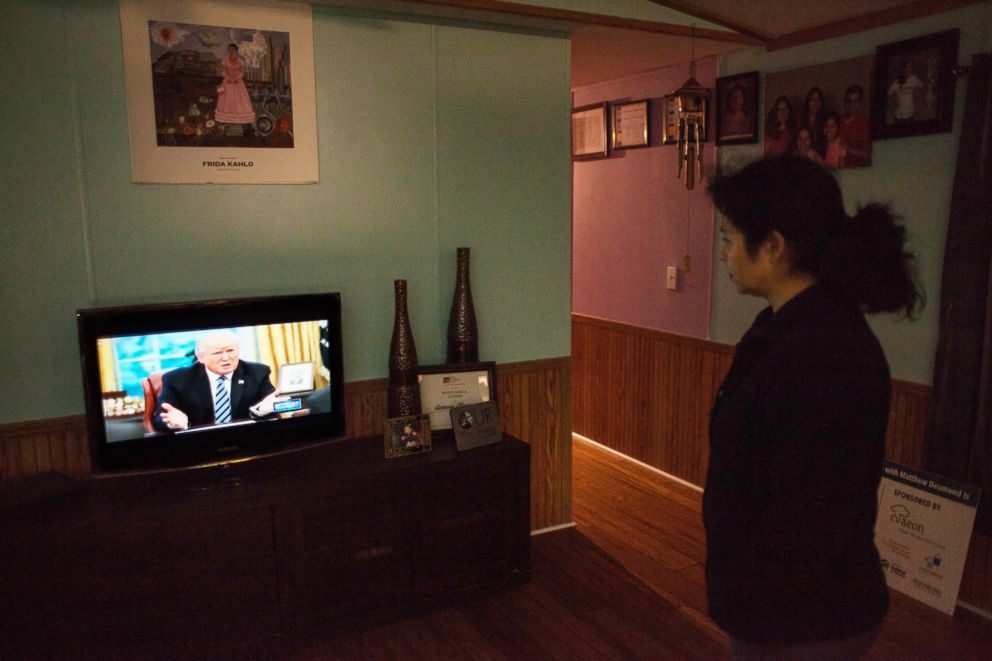
Alvarez, who said she graduated from nursing school in Mexico, is considering going back to school in the United States so she can obtain a student visa and have a valid status, but her advocacy comes first -- she is a devout Christian and believes this is her calling from God.
She is currently planning a local protest march to push for driver’s licenses and better housing conditions for undocumented immigrants.
Despite all these challenges, Alvarez remains hopeful and said she prays for U.S. President Donald Trump.
"I pray for him every single day," she said. "I ask God to please forgive (President) Trump."
